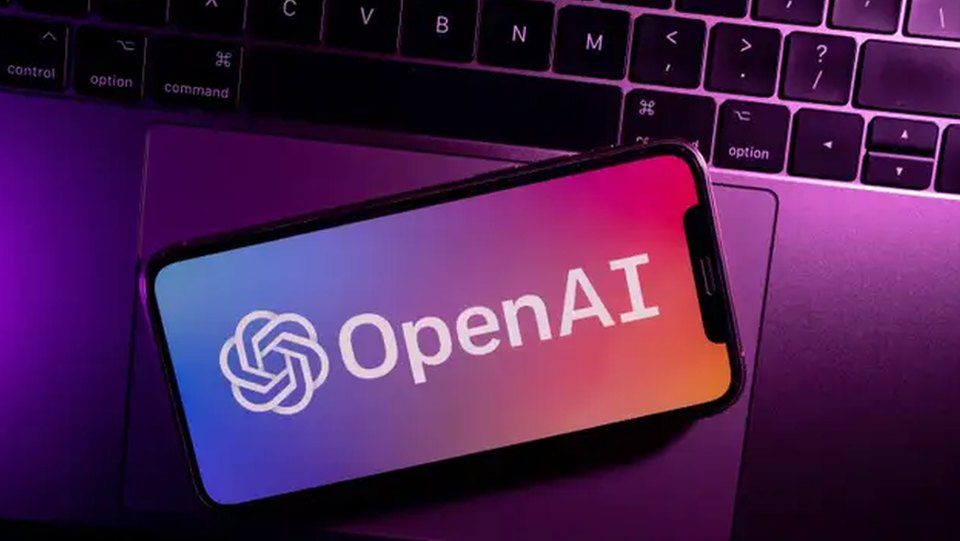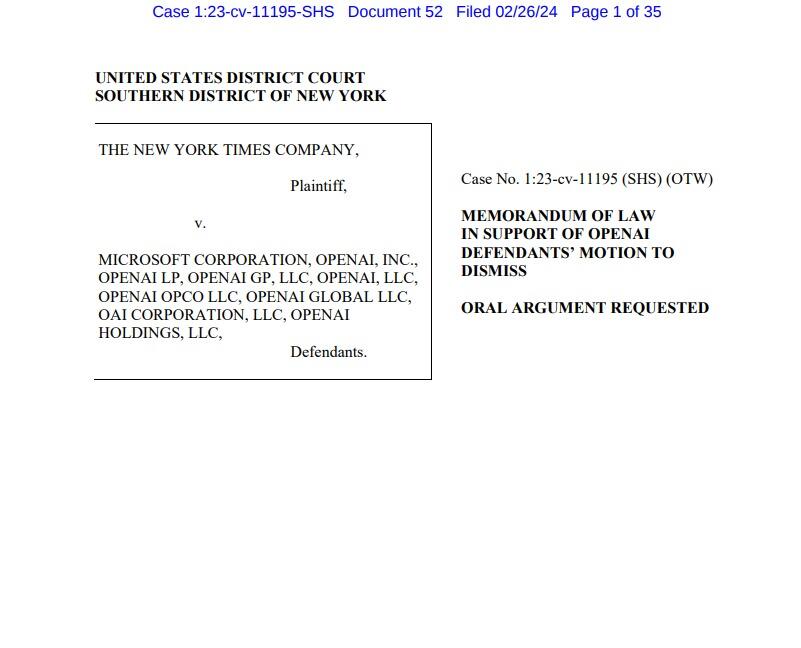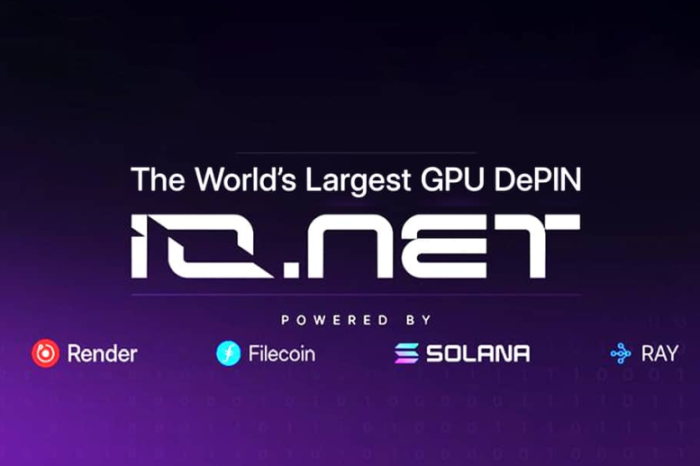OpenAI accuses New York Times of ‘hacking’ AI models in a counterclaim lawsuit over copyright infringement

OpenAI has requested a dismissal of the New York Times (NYT’s) copyright lawsuit filed in December, alleging manipulation of AI its systems through “hacking” to fabricate misleading evidence against the company.
In a legal maneuver that adds another twist to the ongoing battle between OpenAI and The New York Times, the AI giant has petitioned a federal judge to toss out certain parts of the NYT’s copyright infringement lawsuit. According to a recent court filing, OpenAI contends that the newspaper went to extreme lengths, including allegedly paying individuals to manipulate AI systems, including ChatGPT, to fabricate misleading evidence against OpenAI.
The news comes just a little over a month after two authors, Nicholas Basbanes and Nicholas Gage, filed a lawsuit against Microsoft and OpenAI in a Manhattan federal court accusing the companies of using their work without permission to train AI models such as ChatGPT.
The crux of OpenAI’s argument lies in what it terms as “deceptive prompts” used by The NYT to coax its technology into reproducing copyrighted material. While OpenAI hasn’t pointed fingers directly, it’s clear that they’re calling foul play on the methods employed by the newspaper, without explicitly naming the individuals involved to skirt accusations of violating anti-hacking laws.
The term “hacking” here is contentious, with OpenAI’s filing suggesting that it could be more aptly labeled as prompt engineering or “red-teaming.”
“The allegations in the Times’s complaint do not meet its famously rigorous journalistic standards. The truth, which will come out in this case, is that the Times paid someone to hack OpenAI’s products,” OpenAI said in the filing.
According to OpenAI, The NYT’s claims don’t hold up to the high journalistic standards the publication is known for. Instead, OpenAI asserts that the newspaper resorted to underhanded tactics, essentially paying someone to tamper with OpenAI’s products.
However, The New York Times’ attorney, Ian Crosby, dismisses OpenAI’s accusations, claiming that it’s merely an attempt to use OpenAI’s own products to find evidence against the alleged theft and reproduction of copyrighted NYT content.
This legal clash dates back to December 2023 when The NYT initiated legal action against OpenAI and its primary backer, Microsoft. The lawsuit accuses the companies of utilizing millions of NYT articles without authorization to train chatbots, among other AI applications.
The NYT’s lawsuit, drawing from both constitutional and statutory law, seeks to safeguard the original journalism of the publication. It also takes aim at Microsoft’s Bing AI, alleging that it directly extracts verbatim excerpts from NYT’s content.
This legal showdown isn’t an isolated incident. The NYT joins a chorus of copyright holders taking tech giants to court over the alleged misuse of their content in AI training. Authors, visual artists, and music publishers have all lodged similar lawsuits against tech firms.
OpenAI has maintained that training cutting-edge AI models without incorporating copyrighted material is virtually impossible. In a separate filing to the UK House of Lords, OpenAI argued that given the broad scope of copyright protection, it’s unfeasible to train leading AI models without integrating copyrighted materials.
Tech firms embroiled in these legal battles argue that their AI systems use copyrighted material fairly and that such lawsuits pose a threat to the burgeoning multitrillion-dollar industry.
The verdict on whether AI training constitutes fair use under copyright law remains uncertain. However, some infringement claims tied to outputs from generative AI systems have been dismissed due to a lack of evidence demonstrating substantial resemblance to copyrighted works.
Founded in 2015 by Sam Altman and Elon Musk, OpenAI started as a non-profit research institution aimed to pave the way for safe and beneficial artificial general intelligence (AGI). However, in 2020, it transitioned into a commercial entity, marking a significant shift in its trajectory. Despite internal disruptions in November, including Altman’s temporary departure and subsequent return, the company remains at the forefront of the burgeoning AI market, spurred by the successful launch of ChatGPT in 2022.


